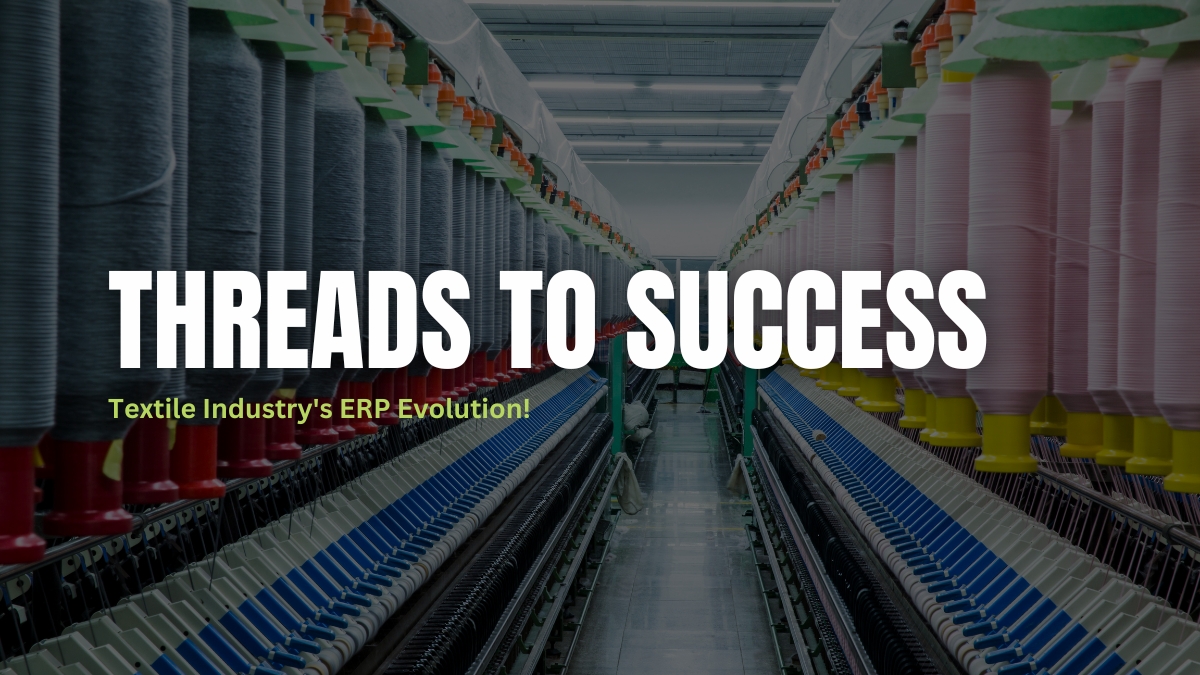The adoption of Enterprise Resource Planning (ERP) systems has revolutionized the way textile businesses operate, offering a comprehensive solution that integrates various processes across the supply chain. From managing inventory and streamlining production schedules to enhancing quality control, and improving customer relationships, Quarto ERP systems can transform the textile industry by driving productivity and fostering innovation.
In the context of Enterprise Resource Planning (ERP) software, the apparel industry is often categorized as a “make-to-stock” industry due to its manufacturing model. Here’s how ERP software functions in the apparel industry, considering its peculiarities:
A) Seasonality and Fashion Trends:
The apparel industry operates in a highly dynamic environment with constantly changing fashion trends and seasonal demand fluctuations. It deals with large volumes of orders with varying specifications.
Quarto ERP’s Sales and Distribution module can handle complex orders, track inventory levels, and it ensure timely dispatch.
The module helps in recording the order details, checking raw material availability, scheduling production, and tracking shipment, ensuring the order is fulfilled on time.
B) Product Lifecycle Management:
Apparel ERP software facilitates product lifecycle management, from design and development to production and distribution.
For example, a garment manufacturer uses the production planning module to efficiently arrange its dying, spinning, and weaving processes. This leads to a seamless flow of materials through the production line, reducing lead times and improving productivity.
C) Demand Forecasting and Inventory Management:
Given the seasonal nature of demand and the short product life cycle of fashion items, ERP systems in the apparel industry focus heavily on demand forecasting and inventory management.
Also Read : Raw Material Crafting in ERP
D) Sales and Distribution:
With the rise of e-commerce and omni-channel retailing, apparel ERP software integrates with multiple sales channels, including brick-and-mortar stores, online marketplaces, and mobile apps. Quarto erp’s Mobile app enables businesses to do all their tasks at the right time. It enables centralized order management, inventory synchronization, and seamless fulfillment to meet customer expectations for fast and convenient shopping experiences.
E) Finance and accounting:
Accurate financial management is crucial for the textile industry. A textile company can track production cost, manage its account payables and receivables and generate financial stability. Quarto ERP’s financial module can handle all financial transactions, budgeting, and financial reporting.
F) Human Resource Management:
The textile industry often employs a large workforce with varying skill levels, necessitating efficient HR management to ensure optimal productivity.
For example Quarto ERP’s HR module can help you track employee attendance, manage payroll, schedule training sessions and performance evolution. This helps in maintaining a motivated workforce and ensuring compliance and labor laws.
Quarto ERP provides a comprehensive suite of modules that address the unique challenges of the textile industry. By integrating these modules, textile companies can streamline their operations, enhance productivity, and maintain high-quality standards. The incorporation of cloud technology further amplifies these benefits.
Navigate through our complete ERP modules!





